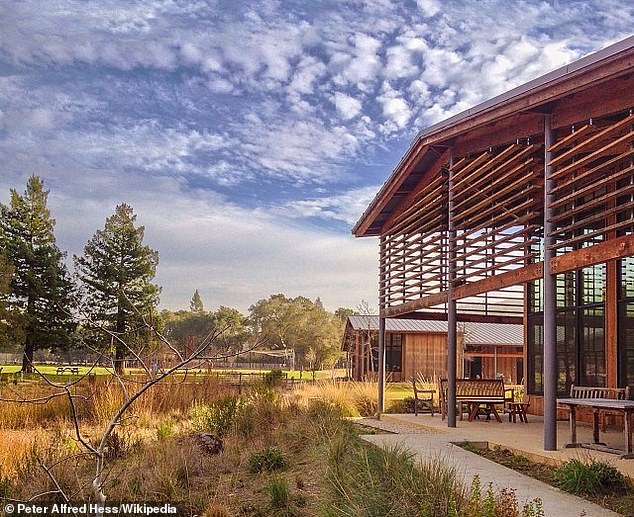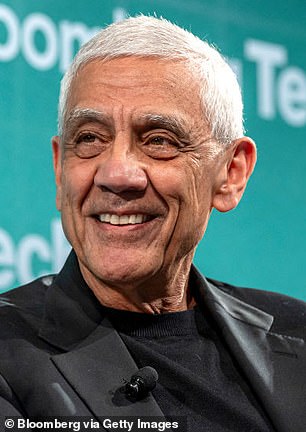The very predictable reason why Bay Area town full of billionaires is going broke
A small, affluent Bay Area community nestled on the eastern slopes of the Santa Cruz Mountains is on the verge of bankruptcy, despite the city being filled with billionaires.
Portola Valley, about an hour’s drive south of San Francisco, is home to 4,500 people.
The small town is known for its wealthy residents and includes the founders of several well-known Silicon Valley companies.
The average household income in Portola Valley is about $235,000, while mansion-style homes average almost $4 million.
But the city’s cash reserves are quickly running out due to rising costs, including a new sheriff’s contract, and California’s Democratic-mandated affordable housing requirements.
Portola Valley, about an hour’s drive south of San Francisco, and home to 4,500 people, is known for its wealthy residents, with an average household income of $235,000

The city’s cash reserves are quickly running out due to rising costs, including a new sheriff’s contract, and the need for affordable housing in California. Pictured is the Portola Valley Library
It would essentially force the city to build low-income housing if they want to receive public money, despite such housing being completely out of place.
Local officials have recently expressed concern about their dwindling cash reserves, which despite being around $1.6 million, most of them have been set aside and earmarked for retirement benefits.
It means some municipalities will ask voters in next month’s elections to approve tax increases to cover such expenses.
California Governor Gavin Newsom has filed a lawsuit along with several cities to block a proposed ballot measure that would make it harder to raise state and local taxes.
Despite the prosperity of Portola Valley residents, they, like many other small towns in the area, rely on the San Mateo County Sheriff’s Office for their policing.
In 2022, the sheriff’s union negotiated a more expensive labor contract, and the higher costs are now being passed on to local governments.
The city’s payments to the sheriff’s office have doubled in just three years from $1 million in 2021 to $2.1 million in 2024.
In addition to the costs of city oversight, Portola Valley also faces the costs of complying with the state’s affordable housing mandates, which require the city to hire consultants.


Some even joked about asking some of the city’s wealthy residents, including venture capitalists Reid Hoffman, left, and Vinod Khosl, right, to donate

The average home in Portola Valley is valued at about $3.8 million, but the state wants the city’s land rezoned to make room for more low-income housing.
The state of California is pushing the city to rezone land for multi-family housing, threatening to withhold federal and state subsidies if the land doesn’t come into compliance.
The average home in Portola Valley is valued at about $3.8 million, but the state wants the city to rezone land to make room for more low-income housing.
But the problems facing Portola Valley are not one-off. Many other California cities are struggling with rising costs, especially when it comes to the benefits and pensions that public employees earn.
Such policies are advocated by Vice President Kamala Harris, who wants to use government funding as leverage and a way to promote the development of more affordable housing.
It means local officials now have to think of other ways to boost their coffers, including introducing a tax on home sales, even though such taxes normally don’t raise significant revenue.
Some even joked about asking some of the city’s wealthy residents, including venture capitalists Reid Hoffman, LinkedIn co-founder and Sun Microsystems co-founder Vinod Khosla, to donate. The couple have both campaigned for political causes in the past.
In next month’s elections, some municipalities are also asking voters to approve tax increases to cover such expenses.
California Governor Gavin Newsom has filed a lawsuit along with several cities to block a proposed ballot measure that would make it harder to raise state and local taxes.
